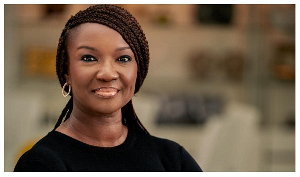The Executive Director of the Africa Education Watch, Kofi Asare, has urged the Government of Ghana to ensure the effective and efficient rollout of its much-touted free sanitary pads initiative.
While lauding the initiative as a significant stride towards improving menstrual health and school attendance among adolescent girls, the seasoned education advocate cautioned policymakers to avoid the critical missteps that derailed a similar intervention in Kenya.
“In 2017, Kenya rolled out a free sanitary pads programme for schoolgirls after an initial pilot in 2011. These six (6) challenges from Kenya are useful to Ghana as Ghana’s President launches a similar one today”.
Kofi Asare, Executive Director of Africa Education Watch
Firstly, Kofi Asare noted that in Kenya, the untimely delivery of sanitary pads has significantly blunted the impact of the programme.
According to him, pads often arrive late in the school term, forcing menstruating girls, especially those from low-income families, to miss four to five days of school each month.
For Ghana, Kofi Asare warned that the timing of delivery is not a minor logistical concern but a core determinant of success.
“Unlike free uniforms or exercise books, which can be delayed by a year and still have value, sanitary pads lose their relevance when delayed even by a month.”
Kofi Asare, Executive Director of Africa Education Watch
Given the above, Kofi Asare urged the government to prioritise prompt and regular distribution, lest the programme become another symbolic procurement activity rather than a genuine educational intervention.

Unreliable Funding Threatens Sustainability
Again, Kofi Asare disclosed that Kenya’s programme has struggled with erratic and reduced budget allocations, leading to interruptions in supply.
According to him, Ghana’s programme is projected to cost GHC 292 million in 2024, of which only GHC 25 million is secured through the Ghana Education Trust Fund (GETFund).
The rest—over 90 per cent—is expected to come from government sources, which, Kofi Asare noted, are neither predictable nor timely.
He, thus, noted that such overreliance on central government funding without buffer mechanisms is a recipe for failure.
He urged the Ministry of Education to diversify funding sources and consider tapping into corporate social responsibility programmes from the private sector to ensure continuity.

Distribution Decisions Must Be Data-Driven
In Kenya, the Executive Director for the education-focused think-tank indicated that the mismatches between distribution lists and actual school enrolment data have led to inefficiencies, adding that some schools receive more pads than needed, while others get little or none.
In Ghana’s case, Kofi Asare warned the country not to fall into the same trap, asserting that credible and updated enrolment data from the Ghana Education Service (GES) should guide distribution to ensure fairness and coverage.
Another flaw in Kenya’s implementation, according to Kofi Asare, is the absence of a robust monitoring and inventory system to track pad distribution.
“In Ghana, similar weak manual recordkeeping systems exist in the GES at the district level. Similar opacity exists under the Ghana School Feeding Programme”.
Kofi Asare, Executive Director of Africa Education Watch
Kofi Asare proposed a digital inventory system that enables independent tracking of pad distribution across districts, ensuring transparency and deterring leakages or misappropriation.
Additionally, in Kenya, girls often discard the supplied pads due to poor quality, many being too thin or lacking adequate absorbency, adding that some even revert to unsafe alternatives like cloth rags or mattress foam.
Ghana currently has two local factories producing sanitary pads. Kofi Asare stressed that the Food and Drugs Authority (FDA) must ensure strict quality control to prevent similar outcomes here.
He cautioned that if quality is compromised, the programme risks not only ineffectiveness but also long-term health repercussions for the beneficiaries.
WASH Infrastructure is Indispensable
Finally, Kofi Asare highlighted a critical structural barrier: inadequate Water, Sanitation and Hygiene (WASH) infrastructure.

He noted that in Kenya, despite pad availability, many schools lack private toilets, water points, and disposal facilities, forcing girls to stay home during their periods.
“In Ghana, about 60% of basic schools lack usable single sex toilets, including urban schools like Pantang Basic School near Adenta, where pupils visit the bush”.
Kofi Asare, Executive Director of Africa Education Watch
He called for a complementary infrastructural plan to provide safe and dignified spaces for girls to manage their menstruation, stressing that the sanitary pads programme must not operate in isolation.
He acknowledged the growing evidence across Africa that access to sanitary pads improves school attendance, enhances menstrual health management, and helps retain girls in school, particularly in poor communities.
However, Kofi Asare stressed that Ghana’s success with this programme hinges not merely on political will or budgetary announcements but on clear implementation strategies, rigorous accountability systems, and a commitment to infrastructural investment.
“We cannot afford to fail,” Kofi Asare cautioned—a reminder that well-meaning policies must be matched with well-executed systems.
READ ALSO: Nigeria Urges Indigenous Firms to Boost Oil Production





















